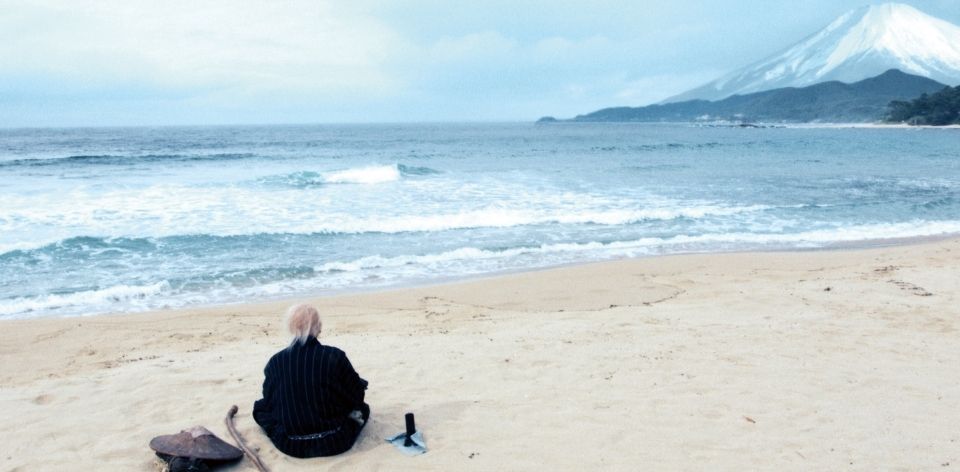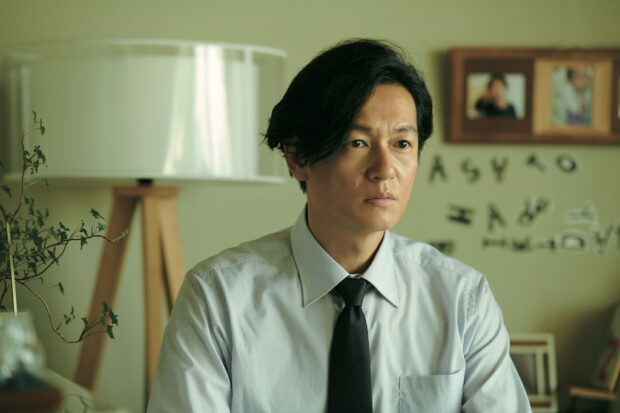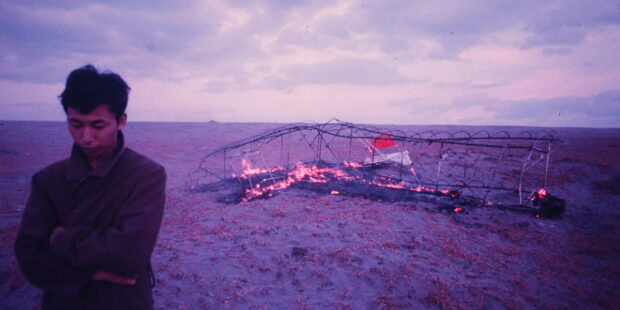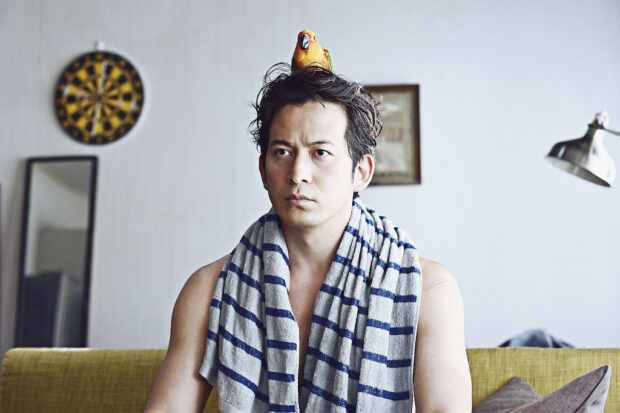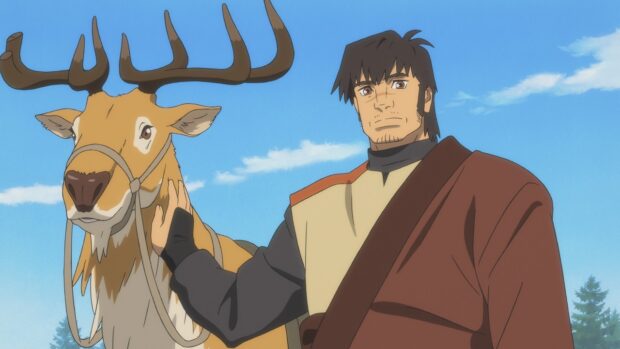As Australian cinemas open back up, it’s festival season again — and not a moment too soon. The Japanese Film Festival is back for a historic 25th year, running around the country from from 28 October to 5 December.
In addition to the 11 must-see films we’ve already told you about, there’s also a few dozen of the hottest releases from the last 12 months. Having covered a number of these for various international festivals, we can say with certainty that this is one of the strongest collections in recent memory.
So, we had a chat with festival programmer Manisay Oudomvilay, who shared their insights on the JFF 2021 selections, personal favourites and the future of online festivals.
The 2020 Japanese Film Festival ran as an online event. Was it important to you to bring JFF back to in-person screenings this year?
Yes, definitely! We’re incredibly excited to bring the Japanese Film Festival back to cinemas after two years. Even before the pandemic foreign films have been quite hard to access in cinemas, so bringing that in-theatre experience back for fans of Japanese film has always been important to us.
In my opinion, there’s something special about watching films in cinemas that can’t be replicated at home. Being able to laugh and cry alongside fellow audience members adds to the fun, and that shared experience is just one part of what makes going to the movies so enjoyable.
Of course, that doesn’t mean we’ve forgotten about JFF Online! Thanks to the enormous success of last year’s program, we’ve decided to continue the program and will be holding JFF Online from 15-21 November 2021. During that week, a selection of five free films will be available online for anyone in Australia to enjoy.
What can people expect at this year’s JFF?
This year the theme of our program is ‘Dreaming beyond Limitations’. From overcoming loss to breaking free from society’s expectations, many of the films celebrate characters who stay resilient in the face of adversity. One example of this is our opening film, Hokusai. The film is a biopic that details the life of legendary Japanese painter Katsushika Hokusai, and it portrays the challenges he faced as an artist during his lifetime.
The JFF 2021 program is one of our most diverse selections yet, with genres ranging from action thrillers and drama to anime, romantic comedies and documentaries. Alongside this we’re also running our Special Series of classic films by Shūji Terayama, plus JFF Online and the JFF Satellite program, which tours regional centres across Australia. The program this year is jam-packed and there’s sure to be something everyone will enjoy!
Some of the films, like Junta Yamaguchi’s Beyond the Infinite Two Minutes, take innovative approaches to COVID-19 restrictions. What other ways has the pandemic influenced the festival content?
Last year the pandemic had a huge impact on the film industry and Japan was no exception. Many of the films featured in this year’s program were shot prior to the pandemic, with production being put on hold partway through filming. As a result, many new titles that came out last year had their release dates delayed.
As you mentioned, some filmmakers also had to get creative in the way they approached production once COVID-19 hit. Despite being made with a low budget under strict protocols, the creators of Beyond the Infinite Two Minutes made it work through the use of clever film techniques and a limited number of filming locations.
Wheel of Fortune and Fantasy is another title that was impacted by restrictions introduced during COVID-19. Directed by Ryūsuke Hamaguchi, this film consists of three stories, the last of which was shot during the pandemic. Interestingly, the creators decided to work the storyline around lockdowns happening in Tokyo at the time. The story is set in the future and features scenes of streets and train stations, without a single soul in sight. In future years, it’s likely that we’ll see more of these creative workarounds as filmmakers adapt to COVID-19 restrictions.
A stream in this year’s program is female directors, something JFF has always promoted, including the always wonderful Naomi Kawase. Along with Miwa Nishikawa and Akiko Ōku, they are presenting three very different films. What trends do you see emerging in this strand?
This year, we’re excited to show three films that have female directors — True Mothers, Under the Open Sky and Hold Me Back. They’re all very unique stories, but a common thread these films share is the fact that they shine a light on those who are most overlooked by society.
First we have True Mothers, a sensitive portrayal of motherhood by award-winning director Naomi Kawase. This film is the story of two mothers who take very different paths in life, and have totally different experiences of motherhood. For one woman motherhood comes as a long-awaited blessing, but for the other it completely upends her life and turns her into an outcast.
In Under the Open Sky, Miwa Nishikawa paints a hardened ex-yakuza who struggles to adjust to society after being imprisoned for thirteen years. The main character, Mikami, is incredibly flawed — his brash attitude and altercations with the outside world lands him in hot water many times throughout the film. However, Nishikawa’s nuanced portrayal of his character growth throughout the film eventually has audiences rooting for him in the end.
Finally, Akiko Ōku has taken a refreshing approach to modern romance by focusing on the female perspective in Hold Me Back. Mitsuko is a 31-year-old woman who has always embraced being single. But when she becomes attracted to a younger salesman, it sets off an internal battle between the comfort of single life and her desire for a romantic relationship. Unlike many romance films, Ōku’s take on the genre is extremely realistic and one that is rarely represented in media. She portrays the ups and downs of romance in a modern context, expertly conveying Mitsuko’s inner turmoil as she navigates her dating life.
In all three films, the directors have shown the perspectives of characters who are rarely focused on not only in film, but in society as a whole. They also portray very real social issues and encourage audiences to question the status quo. We can’t wait to see more of their work in the future!
One of the great additions to the program this year is a focus on the polymathic Shūji Terayama. What do you hope people discover from his work?
This year our Special Series program focuses on the works of Shūji Terayama (1935-1983), one of Japan’s most influential avant-garde directors. From the mid 1960s to the early 1970s, Angura (underground) theatre became prominent in Japan as an anti-establishment movement and Terayama was at the forefront of this experimental scene. From dismantling concepts of time, history and myth to daring portrayals of sexual and political revolution, Terayama’s works are unexpectedly beautiful and discomforting.
Through Terayama’s works, we hope that people will be able to discover and appreciate an extremely important and influential part of Japanese filmmaking. His films were groundbreaking both in terms of their themes, as well as the innovative cinematic techniques used. To this day, Terayama’s artistic legacy lives on, as his works continue to inspire people to embrace unconventional ways of thinking.
The films that are being screened are also original 35mm and 16mm prints, so our Special Series program presents a rare opportunity to watch the films as they were originally intended to be viewed.
There’s two excellent standalone sequels this year: Last of the Wolves and The Fable: The Killer Who Doesn’t Kill. What is it about these films that resonate with audiences?
Gangster and yakuza films are always a hit with audiences at JFF, so we’re incredibly excited to include these films in the programthis year! The lasting impact of films like The Godfather proves that it’s a universally well-loved genre, and personally I think it’s because there’s something about an anti-hero that’s especially appealing to viewers.
For example, in The Fable: The Killer Who Doesn’t Kill the main character is flawed but has good intentions. In this sequel, the protagonist Fable is an ex-assassin, who leaves behind his past life to live an ‘ordinary life’ under the pseudonym Akira Satо̄. However, it’s not long before the mythical hitman is drawn back to the underworld when his past crimes come back to haunt him.
These stories where the lines between good and evil are blurred allow for interesting storylines, with plenty of potential for character development. Of course, it also helps that both Last of the Wolves and Fable have intriguing plots that are capable of standing on their own. The creators have done a great job of world building within these franchises, so it’s no wonder that audiences keep coming back for more!
What are you personally most excited about out of this year’s program?
One of my highlights from JFF 2021 is Sumodo ~ The Successors of Samurai ~. Directed by Eiji Sakata, this film is a documentary that gives viewers a rare glimpse into the world of professional sumo wrestlers in modern Japan. Filmed over the course of six months, Sumodo follows the lives of two wrestlers, Gōeidō Gōtarō and Ryūden Gōshi, as they prepare to battle it out on the legendary stage of Ryōgoku Kokugikan.
Many people don’t realise the sheer amount of physical and mental strength it takes to become a sumo wrestler, but Sakata has done an amazing job of conveying how dedicated these sumo wrestlers are to their roles. It was also enjoyable to learn more about the personalities of the sumo wrestlers who are featured, as that side of them is rarely shown to the public.
Another film that I’m excited about is The Deer King, an anime directed by Masashi Andō and Masayuki Miyaji. Created by Production I.G, the film tells the epic fantasy story of a world that has fallen prey to the deadly Black Wolf disease. Only a few have managed to outlive the disease; former soldier Van, who is the sole survivor of his clan, and a little girl called Yuna.
The film is packed with stunning visuals, and has an engrossing storyline that will have you hooked until the very end. In a way, the film also reminded me of Princess Mononoke as it deals with adult themes such violence and death, despite being an anime. It’s likely that influence also comes from one of the directors, Masashi Andō, who has worked on character design for Studio Ghibli in the past.
So, is the genie out of the bottle: are hybrid (online/in-person) festivals here to stay? Do you see benefits in continuing an online aspect in 2022 and beyond?
Of course, the physical component of JFF will always be the mainstay of the festival. But after seeing the huge success of JFF Online, I definitely believe that online programs have a place alongside in-person film festivals in future years.
There’s a huge demand for more titles to be made available online — after all, it’s a safe and convenient way for audiences to watch their favourite films. Streaming films online also makes them more accessible, and a huge benefit of JFF Online has been that audiences from all over Australia could access our films, even if they’re not close to a city centre.
JAPANESE FILM FESTIVAL AUSTRALIA runs from 28 October to 5 December 2021 in. You can check out our entire coverage — including our list of must-see films — and previous years, at our JFF hub. Read more coverage of Japanese films from the silent era to festivals and other contemporary releases. Plus go beyond Japan with more film from Asia in Focus.

